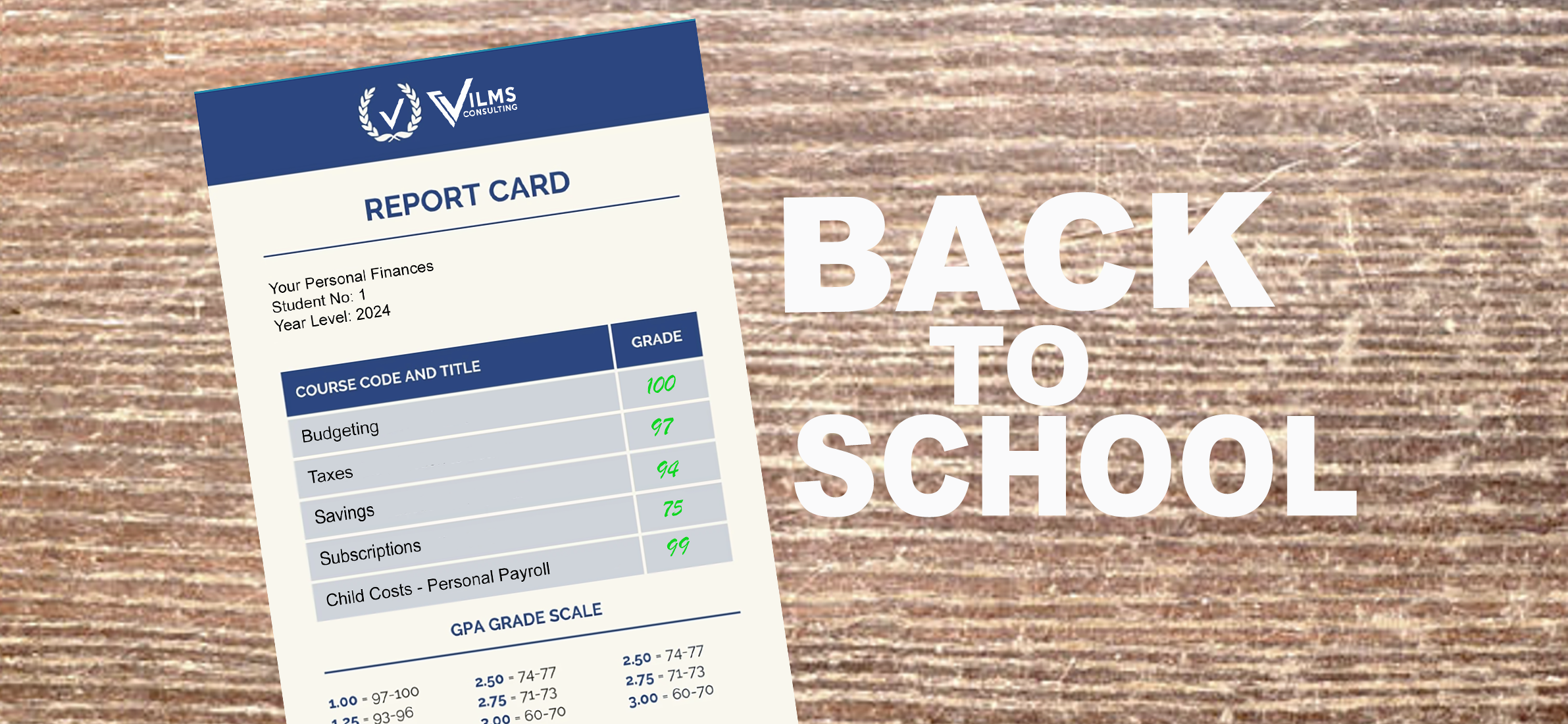As summer fades and the back-to-school season kicks into high gear, many parents find themselves juggling the demands of family life and finances. While the return to school brings a welcome routine, it also introduces new expenses and financial considerations. Taking control of your finances during this transitional period is crucial for ensuring a stable and stress-free year ahead. Here’s a guide to help you navigate your financial landscape as the school season begins.
ASSESS YOUR BACK TO SCHOOL BUDGET
Understanding and planning for the costs associated with the new school year helps you avoid unexpected financial strain and ensure you’re prepared for all expenses.
- List All Potential Expenses: Include items like school supplies, uniforms, extracurricular activities, and any additional fees (e.g., sports or arts programs).
- Set a Budget: Allocate a specific amount for each category and stick to it. Use budgeting tools or apps to help track and manage these expenses.
PLAN FOR EXTRA-CURRICULAR ACTIVITIES
Extracurricular activities can significantly impact your budget. Planning ahead helps you manage these costs without compromising other financial goals.
- Prioritize Activities: Decide which activities are most important to your child and family. Look for free or low-cost options if necessary.
- Create a Fund: Set aside a specific amount each month for extracurricular activities to avoid last-minute financial strain.
REVIEW YOUR SAVING AND EMERGENCY FUND
The start of the school year is an excellent time to review your savings goals and emergency fund to ensure you’re prepared for unexpected expenses.
- Assess Your Emergency Fund: Ideally, you should have three to six months’ worth of expenses saved. If your fund is lacking, consider increasing your contributions.
- Set Savings Goals: Plan for upcoming expenses like holiday shopping or future school-related costs. Automate savings if possible to stay on track. Did you know that you can split your paycheck and send it to more than one account to help with automatic savings?
REVISIT YOUR DEBT MANAGEMENT PLAN
Managing debt effectively is crucial for maintaining financial stability, especially with added back-to-school expenses.
- Review Your Debts: List all outstanding debts, including credit cards, loans, and student loans. Assess interest rates and monthly payments.
- Create a Repayment Strategy: Focus on high-interest debts first or consider consolidating loans if it will save you money. Set aside extra funds to pay down debt when possible.
TEACH YOUR KIDS ABOUT MONEY
Back-to-school is a great opportunity to instill financial literacy in your children, helping them understand the value of money and budgeting.
- Involve Them in Budgeting: Show older children how you create and manage the household budget. Involve them in discussions about financial decisions.
- Give Them Responsibility: Consider giving younger children a small allowance and teaching them how to budget and save for items they want.
At Vilms Consulting, we specialize in helping you manage your business finances, but our practices and advice can translate to your personal finances as well. Give us a call today and schedule your free consultation!




